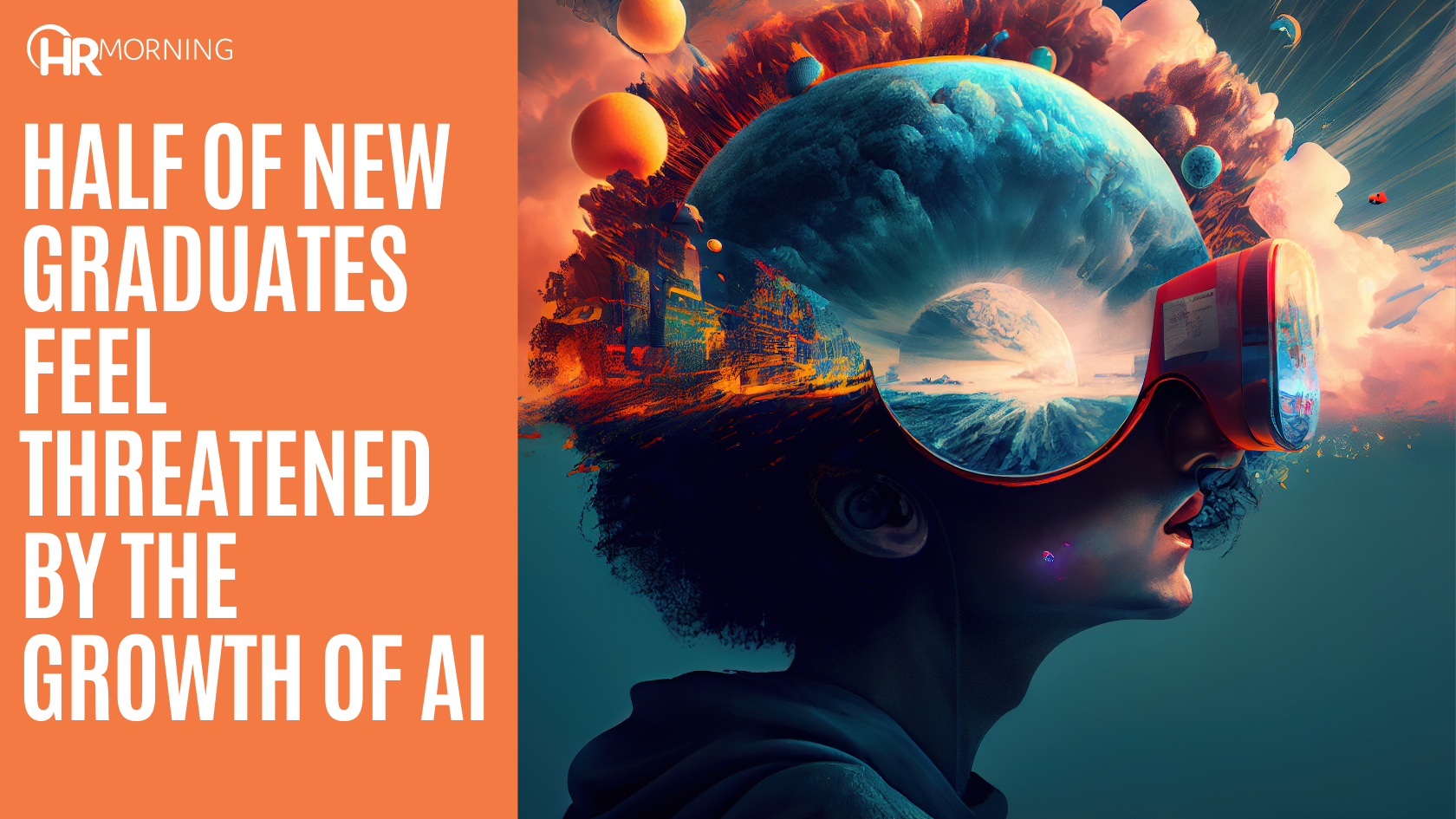Recent college grads are walking into a rapidly changing new world of work – one where workers have the upper hand and employers are scrambling to keep their best workers.
New grads are also entering the workforce at the same time as a big corporate disruptor: artificial intelligence (AI). And, as it turns out, new grads aren’t immune to AI fears. In fact, many are questioning their employability and their role in the workforce, according to Cengage Group’s 2023 Employability Report.
That means as new grads enter the workforce, they may feel unprepared and lack confidence. But new grads are far from a lost cause. HR can help – here’s how.
How new grads feel about AI
The Employability Report found that about half of new graduates (46%) feel threatened by the growth of AI. About half (52%) also said that they questioned their workforce readiness.
And these fears aren’t unfounded: more than half of employers (57%) say certain entry-level jobs, teams and skills could be replaced by AI.
Feeling unprepared for the workforce isn’t just about AI, though: New grads report that their college experience is also to blame for lack of workforce readiness. The report found that:
- Only 41% of grads said their program taught them skills needed for their first job, down from 63% in 2022
- Fewer than half of grads (47%) participated in internships, apprenticeships and hands-on learning programs this year, compared with 63% in 2022, and
- Of those who did participate in learning programs, more than a third (35%) did not receive any guidance from their school in finding one.
Lack of real-world experience – paired with the technological advancements of AI – has left new grads feeling uneasy about their place in the workforce. These feelings of being unprepared – if new grads aren’t supported by their employer – can lead to disengagement, disenchantment and turnover.
What employers need to do now
With grads feeling underprepared, underqualified and unconfident, how can HR help new grads catch up to their colleagues and gain the essential skills they feel like they’re missing?
Upskilling and reskilling – which is becoming more important for many workers – could be the solution to new grads’ workforce readiness, Cengage Group’s data suggests.
For grads, 6 in 10 (61%) say they will need to develop or strengthen their digital skills due to AI. And on the employer end, more than two-thirds (68%) of employers say many employees will need to reskill or upskill in the next three to five years because of emerging technology.
“No part of the workforce is immune to the changes AI will bring. Many workers will need to develop new skills to work alongside new technology or perhaps even find new careers as a result of AI disruption,” says Michael Hansen, CEO of Cengage Group. “As we collectively navigate these changes, we are laser-focused on helping people develop in-demand skills and connect to sustainable employment.”
Here are three ways HR can prioritize upskilling:
- Identify knowledge gaps: Get a pulse check on your people to identify where knowledge and skills gaps are – and then focus on the skills that are the most in-demand and will provide the most value for your workforce
- Break down silos: Cross-training can be one of the most beneficial ways to close gaps, but that can’t happen until workplace silos are broken and employees start to become invested in all parts of the business, and
- Provide continuous learning opportunities: Support training through an online training platform that can help workers decide what to focus on and stay updated with the skills they need.



